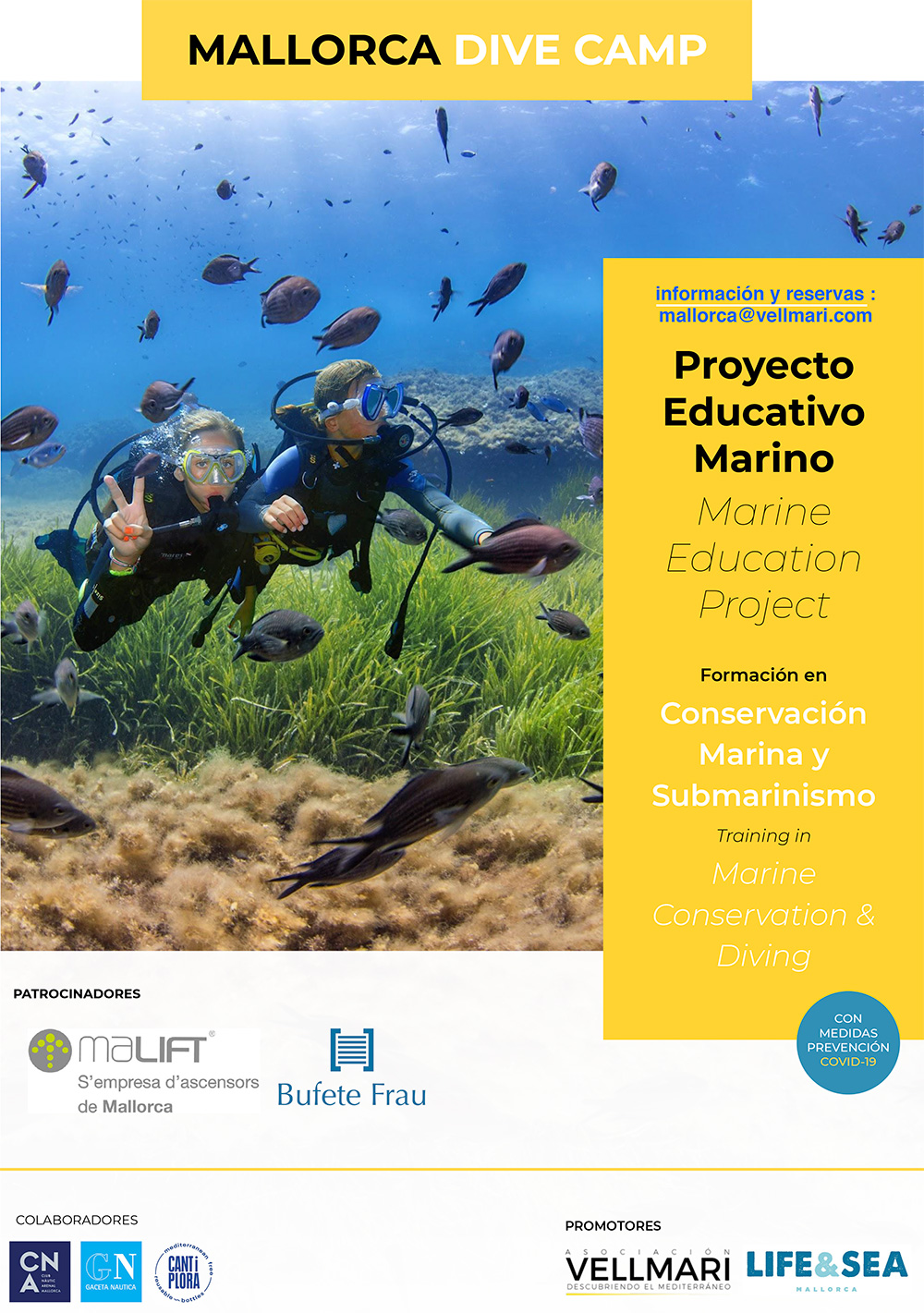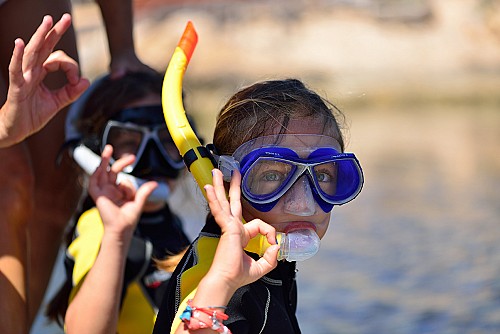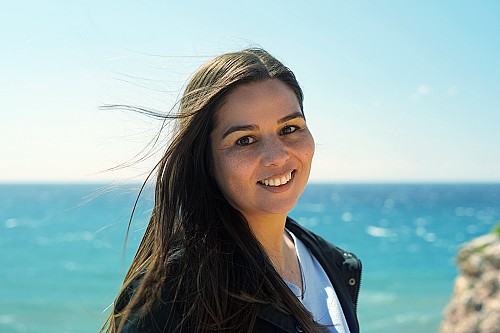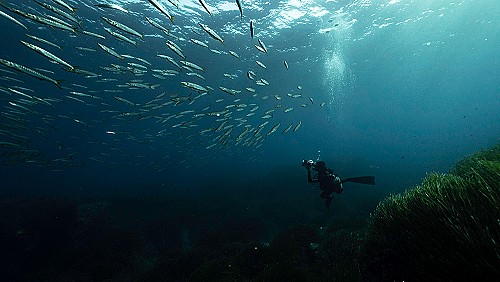Cristina Ozores, director of the marine education program at Vellmarí
Published 28.05.2020
Share
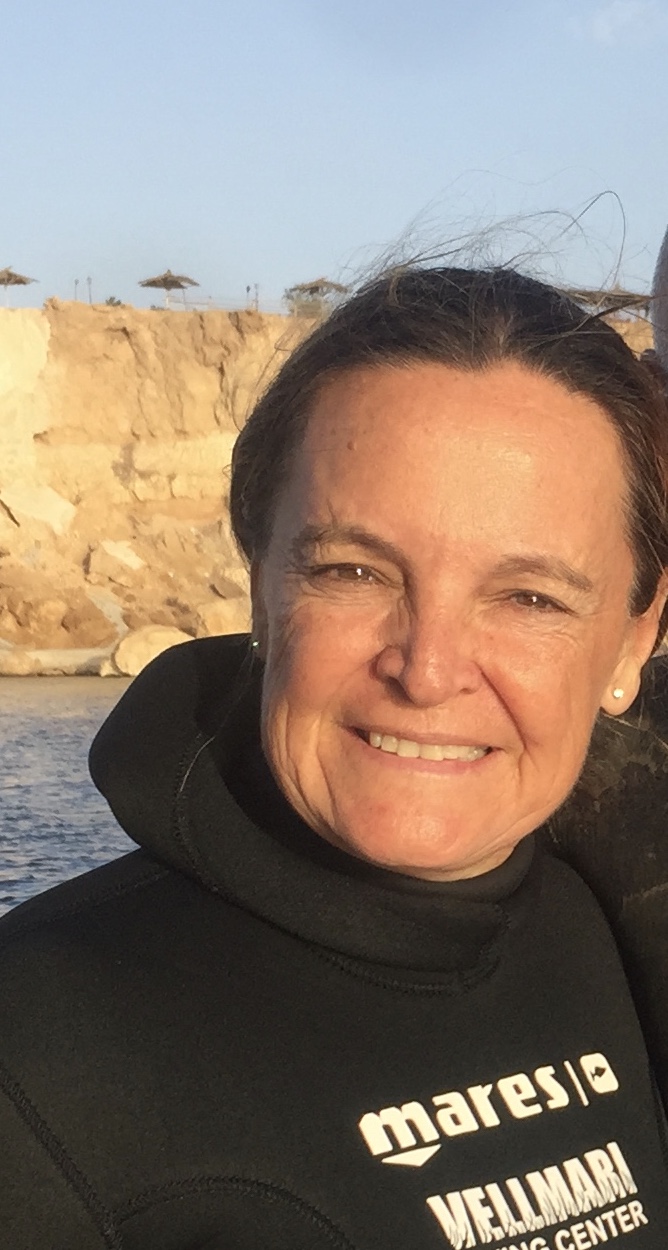
Vellmarí is a diving centre and an association based in La Savina port, in Formentera since 1993. The brain-child of inspirational photographer Manu San Félix, the centre organises marine conservation activities and raises environmental awareness. It has launched one of the most innovative environmental education activities in the Balearics: the Dive Camps. We talked to Cristina Ozores, director of the marine education program at Vellmarí.
What is your personal and professional career path?
I have been a resident of Formentera for 22 years and my professional career has focused on encouraging people to protect the marine environment, and specifically the seagrass posidonia.
Among other projects, I am editor of the collection of illustrated books "The Adventures and Secrets of Posi", a series supported by the Obra Social La Caixa, the Consell de Mediambient i Cultura de Formentera, and the Ibiza Preservation Foundation. It consists of four little books about the Posidonia meadows and their ecosystem: Posi tiene un Don, El viaje de Posi, Los peligros de Posiand Posi viaja a la superficie. In addition, I am the promoter and director of the school program "Diving with Posi", supported by the Council of Culture and Environment of Formentera, with a participation of 100% of Year 4 and 5 of primary schools in Formentera. I also organize lectures about the importance of seagrass meadows in Ibiza and Formentera.
I am currently part of the executive team of the Vellmarí Association. I have been working as director of the Environmental Education Department since 1993. In this role I have successfully managed marine education programs and projects targeted to schools and young people in Formentera and Ibiza. I also coordinate the Formentera Dive Camp program with 250 participants per year. This project aims at revealing the importance that seas and oceans have to our lives and the planet as a whole. We share with young people the values for the conservation and respect of the marine environment and its species.
What are the challenges of marine environmental education?
Marine environmental education is a tool to bring the sea and the oceans closer to young people and also to teach the whole of society about the beauty of our seas so that they respect it.
"The sea" should be one more subject in the educational curriculum.
The most important thing for me is to be able to carry out an educational project in an effective way, making the most of the marine environment around us to optimize learning and get excited about teaching.
Those of us dedicated to marine education must be alert and up to date with the latest technology developments as they can help us bring the sea closer to the classroom.
How are you going to approach the Dive Camp this summer?
The Dive Camp is a marine education program aimed at children and young people between the ages of 8 and 17. This summer we have new programs. We have included new workshops such as one about the Antarctic, the plankton, and the endangered fan mussel “nacra” (Pinna nobilis) which will count with the masterclass of IMEDMAR's José Tena in marine biology.
We will continue with the seagrass posidonia oceanica workshop which this year will have a stronger science element involving field sampling with methodologies adapted to young people. Posidonia expert PhD Nuria Marbá from IMEDEA will join us.
The camps also include diving related activities focused on plastic pollution, underwater photography and species identification.
How are you living the social and environmental crisis and how do you think we should tackle it?
I'm living it confined and very sad about the social and environmentalsituation we are in. I try to make the most of the time and have a routine to handle this situation in the best possible way. I have spent a lot of time working on the Dive Camps and on the educational materials.
I believe that we must approach this situation with resignation, on the one hand, and with optimism, on the other. This situation has taken us all by surprise, it has forced us to stop and rethink our lifestyles and where we want to go. It gives an opportunity to choose which things we want to keep and which ones we want to change. We can't go back, we must look forward and not forget this wake-up call. We must live in harmony with nature.
Quick test for sea lovers
A book: Finis Mundis, by Laura Gallego García (El barco de vapor prize).
An image you associate with the Balearics: the green and turquoise colour of the sea.
A marine species: Manta ray and the seagrass Posidonia oceanica.
An organization or person who is a role model: National Geographic.
A beach: Mitjorn, in Formentera.
A phrase that defines you: I am a very positive person, very hardworking, I love family, I love the sea and nature.Are you an optimist, realist or pessimist? Very optimistic and realistic.
